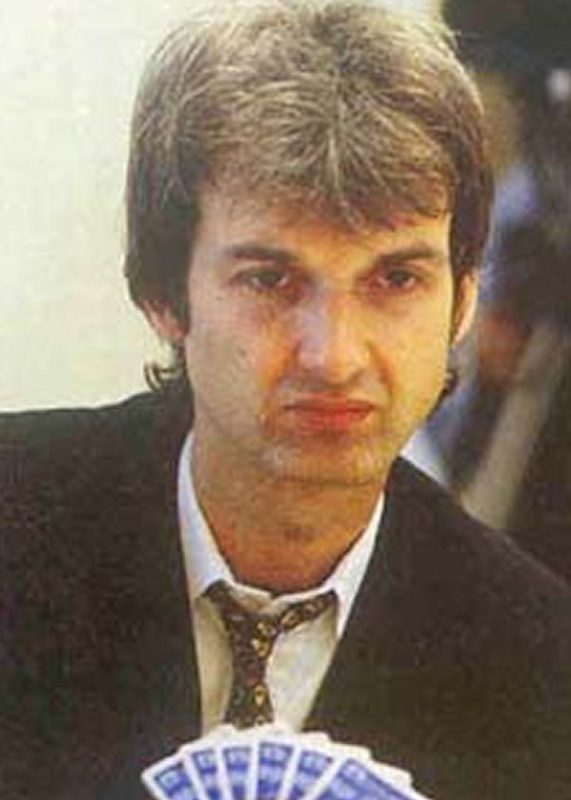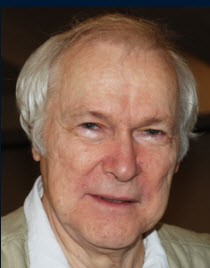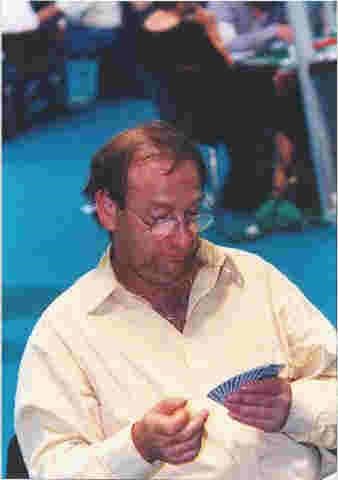Conducted by Marc Smith
Set 21-12 – November-December 2021
Welcome to the final BBO Prime Bidding Challenge of 2021. Our guest panelist this month is Pär Ol-Mårs from Stockholm, Sweden. Pär is 65 and is now retired after working the last 12 years as a senior design engineer and project manager in Saudi Arabia and Azerbaijan. He has played bridge since he was 15, but little during his years as an expat. He is now living in Stockholm and, with live play having restarted in Sweden, he is playing 2-3 times a week at Bk St: Erik’s bridge club, where he regularly plays against some of the best players in the world. For the past two years, Pär has been the captain of the Swedish national mixed team, but due to the pandemic he is still waiting to take his team to their first championship.
This looks like a tough set of problems, with the panel producing a majority on only three out of the eight, and on those three only barely, with just 9/16 voting for the most popular action. However, the popular choice of the competition entrants is also the top-scoring bid on six deals. There was one hand, though, on which, by the middle of the month, the panel’s choice had not received a single vote from a competitor. This looks like a fitting set on which to end our first annual competition as competitors will have to bid very well to score highly this month. The discussion should be lively, so let’s get on with the show…
HAND 1.
| ACTION | MARKS | PANEL VOTES | COMPETITORS ENTRIES (%) |
|---|---|---|---|
| 3NT | 10 | 9 | 46 |
2  | 9 | 5 | 36 |
2  | 6 | 1 | 1 |
3  | 6 | 1 | 0 |
3  | 0 | 0 | 6 |
| 2NT | 0 | 0 | 5 |
| 4NT | 0 | 0 | 3 |
2  | 0 | 0 | 1 |
| Dbl (illegal) | 0 | 0 | 2 |
We start with a deal on which the same action attracted a majority of both panelists and competitors. However, it is unclear to me that the majority wins the debate, so let’s hear what they have to say:
SUNDELIN: 33NT. Cowardly, assuming a sensible opponent.
BRINK: 3NT. Sorry, no inspiration…
OL-MARS: 3NT. Spade or diamond leads may be sensitive, but 3NT is our most likely game. Club game (or slam) may suffer a heart ruff. I hope North had a bid available to show 5-5 in majors, so that he can’t have that.
LAVEE: 3NT. Slam is very unlikely, and 3NT rates to make on most hands. Some people might bid 3♦ auto-splinter to avoid some bad 3NT contracts, but 3NT seems like a practical choice.
A couple mentioned the possibility of a heart ruff.
COHEN:3NT. Any thoughts of 6♣ vanish when I picture partner with four hearts to the queen. Also, if we need the club finesse, it rates to lose
CHAGAS: 3NT. An eventual perfect fit for 6♣ would still run the risk of a heart ruff.
Jill sums up what does not seem like a particularly convincing case for the majority.
MEYERS: 3NT. I don’t know if there is a trick here, but I know in real life I would just bid 3NT.
WANG: 2♥. Game forcing. Maybe 5♣ is better than 3NT.
BIRD: 2♥. No natural bid comes close to describing my hand, so I will start with a cue-bid. Partner should resist rebidding an inconvenient 3♦ , since I had a forcing 2♦ available with a diamond side suit.
DE WIJS:2♥. I plan to next bid 3♣ and then see what happens. Ideally partner skips the 3♦ bid and then I will know we might belong in the club slam.
Both Andrew and Tim make the same, telling point:
ROBSON: 2♥. Woolly, but it would be good to find out whether partner has spade values. We may be on for 6♣ , although I’d worry about a heart ruff. We’ll probably end in 3NT but it doesn’t hurt to investigate.

COPE: 2♥. Our likely resting spot may well be 3NT, but we have to investigate other options with this forcing bid. Partner, having bid 1NT, has denied four spades. If he now shows a spade stopper over 2♥, we can start to see the danger of 3NT on a diamond lead.
There were just two mavericks.
LARSSON: 2♠ . Perhaps 2♥ is the normal bid, but 2♠ might help partner evaluate his cards better so I prefer 2♠ .
BROCK: 3♦ . Self-agreeing splinter. Not perfect with the singleton ace, but that looks like the best I can do.
Although partner had only a 7-count, it was xx/A10x/xxxxx/Kxx so 6♣ was a good contract. Whether you get there after you start with 2♥ and he bids 3♣ , then 3♦ -3♥ is not certain. One thing that is, though, is that he will just wait for you to produce dummy if you raise to 3NT at your second turn. A moral victory for the 2♥ bidders, I think, so only a 1-point difference.
HAND 2.
| ACTION | MARKS | PANEL VOTES | COMPETITORS ENTRIES (%) |
|---|---|---|---|
| Pass | 10 | 9 | 40 |
4  | 8 | 7 | 31 |
| Dbl | 0 | 0 | 22 |
4  | 0 | 0 | 2 |
| 3NT | 0 | 0 | 2 |
| 4NT | 0 | 0 | 2 |
3  (insufficient) (insufficient) | 0 | 0 | 1 |
For the panel, and for most competition entrants, this deal offered a straight choice between passing and bidding 4♥. I had the hand at the table, and I am glad to see that I am not the only one capable of looking foolish.
ROBSON: Pass. I really don’t fancy a spade to the ace and a club through my king in 4♥-X.
SUNDELIN: Pass. Again, cowardly. I am imagining spade ruffs and clubs offside in 4♥.
MARSTON: Pass. Partner opted out. Not the sort of hand to go solo.
What do you make of South’s 3♠ bid on a passed hand? Tim comes to the logical conclusion.
COPE: Pass. One assumes that the 3♠ bid is spade length with a club fit. At this vulnerability, to bid 4♥ could land me in a lot of hot water if North has a stiff spade and wields the axe. I am also not sure that I have any defence to 5♣ , which I may push them into.
COHEN: Pass. My beautiful hand deteriorated with each opposing bid. I’ll believe them and hope I am not being had.
The opponents were both multiple world champions (it was Bob Hamman and Hermann Lall),
BRINK: Pass. Difficult. I would love to bid, but I am afraid of going down. I don’t love that, although I am the strongest at the table (this time my hand, not my play), I have to pass. I hear the crowd yelling, “Boooooohhh” (which I like). Shame on you, Brinky…Bid!!” But I’m stubborn and continue to pass.
Sally and Gabriel both rule out one of the alternatives.
CHAGAS: Pass. Double could bring diamonds in from partner, and I cannot afford that.
BROCK: Pass. A bit worried, but 4♥ looks too much and I can’t think double will help.
Let’s hear from the fearless brigade.
LAVEE: 4♥. If I don’t bid, we could easily miss a game. If partner has the wrong hand, though, 4♥-X could be a massacre.
LARSSON: 4♥. Too tempting to resist.
WANG: 4♥. I hope I can make it.
OL-MARS: 4♥. I hope to get a favorable lead and that partner will have some useful cards. South’s 3♠ doesn’t have to be very serious.
BIRD: The expectation from my three-loser hand has deteriorated somewhat, but I am still reluctant to pass. A black-suit lead may be helpful.
MEYERS: 4♥. I can’t stand a spade out and club back if I bid 3NT. I will take a shot at 4♥, and if I bid it quickly enough maybe they will take a save.

DE WIJS: 4♥. Against an inventive bidder (Zia comes to mind) I guess I should try to get spades into the picture with 4♣ . Not too easy for partner to understand all that, so I am playing it “safe” here. Double would be takeout, so that option is out.
4♥ was an easy make as partner held 10xx/Jx/K109xx/Axx but had no obvious bid over 3♣ . The problem is that the opponents have had a misunderstanding, as South thought 3♣ showed clubs and spades (it didn’t), hence his strange 3♠ bid on what turned out to be Jxx. You really want to defend, either 3♠ -X (+1400) or 4♣ -X (+800), but is that possible? Presumably, double here is not for penalties and would get 5♦ from partner. Pass got me +300 defending 3♠ -undoubled and cost 8 IMPs. To flatten the board you have to bid the solo 4♥. It’s a tough game!
HAND 3.
| ACTION | MARKS | PANEL VOTES | COMPETITORS ENTRIES (%) |
|---|---|---|---|
| 4NT | 10 | 8 | 35 |
5  | 8 | 6 | 12 |
| 5NT | 6 | 1 | 5 |
5  | 6 | 1 | 11 |
5  | 2 | 0 | 12 |
6  | 2 | 0 | 2 |
| Pass | 0 | 0 | 23 |
Halfway through the month, the leading choice of the competition entrants was scoring zero, as not a single panelist even considered passing the double. Larry sums up the panel’s view of the Pass.
COHEN: 4NT. For now. Please don’t tell me the double is “penalty.” We aren’t in 1970.
BROCK: 4NT. It looks right to remove with a good hand and a void. 4NT should work out OK, though we might miss a heart fit. For me, the double is like a strong NT with no wastage in spades, so partner is no more likely to have hearts than either minor.
When the first six answers I received from panelists were all 4NT, I wondered whether I should have taken the auction one round further, as there were quite different views expressed about what they intended to do next… Both Simon and Par intend to pass partner’s five-level response.
DE WIJS: 4NT. Let’s start by giving partner a choice (of two suits in my book). After that, I think I’ll pass partner’s bid. Sure, we could miss a good slam, I know, but I am unwilling to go down in one this time.
OL-MARS: 4NT. Partner’s double is for take-out, but I will pass if I don’t think we can make a contract. So, hopefully partner can bid slam if it is on. Otherwise I will pass his bid.
Whereas Paul plans to force to slam.

MARSTON: 4NT. Followed by 5♠ . Slam should have a reasonable chance.
Others have not yet decided what to do next…
CHAGAS: 4NT. Then I’ll think.
MEYERS: 4NT. More than one place to play the hand. If partner bids 5♦ , I will sit awhile deciding whether to raise.
Sjoert tells us why he prefers 4NT to one of the alternatives.
BRINK: 4NT. I feel 4NT is what we all bid, except the people who bid badly, 5NT. For me 5♠ would show a strong one-suited hand.
When I posed this problem, there were a number of issues that I hoped panelists would address, particularly what is the difference between 5♠ /5NT? Does 5♠ shows two suits including hearts and 5NT minors? Does 5♠ show a spade control and 5NT not? Does 5♠ show interest in a grand slam and 5NT not? Or, something else…
WANG: 5♠ . This should offer partner a choice of all three suits.
ROBSON: 5♠ . Pick-a-slam with first-round spade control and possible grand slam interest, although this is marginal and may be a tad too much.
SUNDELIN: 5♠ . Enough of cowardliness.
COPE: 5♠ . I am prepared to commit this hand to slam, therefore show the spade control and two or more places to play. If partner is uncertain of the strain from his side, they can always bid 5NT to ask my opinion.
The comments from Daniel and Jessica raise another question. Unfortunately, neither tells us the difference between bidding 5♠ /5NT now or starting with 4NT and then making one of those bids.
LAVEE: 5♠ . I am torn between bidding 5♠ directly and 4NT and then 5♠ . I’m not sure, but either way I want to make a try for a grand.
LARSSON: 5NT. Pick a slam.
Only David simply picks a contract, and there is some sound logic to his reasoning.
BIRD: 5♣ . It looks obvious to bid 4NT, but then I will have to make the final decision with little to guide me. Bidding shows some values, so partner may be able to raise when it is right.
For the record, partner had Kxxx/QJx/AK/Kxxx and hearts were 5-1, so 5♣ was all you could make and 4♠ -X was two down. Some of the 4NT bidders will join David in going plus.
HAND 4.
| ACTION | MARKS | PANEL VOTES | COMPETITORS ENTRIES (%) |
|---|---|---|---|
5  | 10 | 6 | 38 |
4  | 9 | 3 | 5 |
3  | 7 | 3 | 22 |
3  | 6 | 2 | 5 |
6  | 5 | 0 | 1 |
| 3NT | 4 | 1 | 11 |
| 6NT | 2 | 1 | 0 |
| 4NT | 2 | 0 | 14 |
| Pass | 0 | 0 | 1 |
4  | 0 | 0 | 1 |
| Dbl (illegal) | 0 | 0 | 2 |
To say that we lacked agreement on this one would be an understatement. Although we are presented with a fairly common situation, the panel offer six different ways forward, whilst the competition entrants find even more options. The largest faction on the panel went for what is perhaps the most pragmatic choice.
MEYERS: 5♣ . I think we have a good shot at making 5♣ and we could be down in 3NT on a heart lead.
CHAGAS: 5♣ : 3NT on an inspired day. 6♣ over a vulnerable 3♣ opening.
SHENKIN: 5♣
SUNDELIN: 5♣ . A gamble. We could be down or be making an overtrick, but I have no clever method to explore without giving lead help.
LAVEE: 5♣ . Neither 3NT nor 6♣ look like particularly good prospects.
David gives a clear explanation of why this is a sensible choice.
BIRD: 5♣ . Am I supposed to respond 3♦ , hoping that partner can indicate a heart stopper for no-trumps? Or perhaps simply risk 3NT? Well, if we have seven club tricks, 5♣ is on the spade finesse at worst.
Larry did indeed follow the route David mentioned…
COHEN: 3♦ . Maybe partner bids 3♥, and then I can comfortably bid 3NT. Once that dream ends, I can always bid 5♣ . Tipping off the lead doesn’t seem too important here.
Whereas Tim is looking for a singleton heart.
COPE: 3♦ . Have I played with this partner before, and do I know their style of pre-empts? In a non-Meckwellian world, a change of suit is forcing and allows partner to describe their shape. We are hoping to hear 3♥, which would be a singleton heart, and we would then have more reason to take a punt at slam. If partner, however, bids 3NT (showing a stiff diamond), we might still continue with 4♣ to see if we can get a heart cue-bid out of him.
I would question the method here, as it sounds like he has to bid 4♣ with the least suitable shape for a high contract, ie 2-2-2-7? Shouldn’t 3NT show no singleton and 4♣ the singleton diamond?
LARSSON: 3♦ . Let’s hope I get wiser.
Some decided to investigate slam without worrying about which might be the better game…
BRINK: 4♦ . A cue-bid showing slam interest in clubs. What else?
DE WIJS: 4♦ . General slam try for clubs. I am hoping to hear a heart cue-bid.
MARSTON: 4♦ . If I get 4♥ from my man, I will bid 6♣ . I guess the grand is possible opposite something like Qx/Ax/xx/QJxxxxx, but I have no way to find out everything.
They seem to have the best of the debate, whereas the next option seems seriously flawed.
OL-MARS: 3♠ . Difficult without knowing how partner’s pre-empts usually look. If he bids 3NT now, I will continue towards slam. If not, I will settle for 5♣ . I haven’t decided what I will do if raised to 4♠ .
WANG: 3♠ . I hope partner can bid 3NT, otherwise we will play in 5♣ .
Quite how partner knows which red-suit king he needs for 3NT, is unclear to me. Sally doesn’t think it worth asking him.
BROCK: 3NT. I’ll take a risk on the heart suit. Partner might have some help there. I don’t fancy 5♣ to make,
Whilst Andrew goes for the big marbles whilst also making an accurate prediction.

ROBSON: 6NT. Okay, I know I’ll only get two marks, but who leads from a broken heart holding against 6NT. They may easily do so versus 6♣ .
Wouldn’t the other hand be on lead against a club slam, though? Unluckily, North’s heart suit was not that broken, but Q-J-10-x-x-x on lead this time.
HAND 5.
| ACTION | MARKS | PANEL VOTES | COMPETITORS ENTRIES (%) |
|---|---|---|---|
3  | 10 | 4 | 25 |
4  | 9 | 4 | 0 |
5  | 9 | 1 | 9 |
4  | 8 | 6 | 46 |
3  | 6 | 1 | 6 |
3  | 3 | 0 | 10 |
| Pass | 0 | 0 | 1 |
| 3NT | 0 | 0 | 1 |
6  | 0 | 0 | 1 |
2  (insufficient) (insufficient) | 0 | 1 |
It seems that as no one has read the system, (which says 3♦ is Staymanic, 3♥ is a slam try in clubs and 3♠ a slam try in hearts), so we will do what everyone assumed and treat 3M bids as natural and forcing.(It was written a year ago and I forgot when I posed the problem.) There is little consensus on the panel, with the largest single faction but comfortably less than half, signing off in game. The rest all make some attempt to investigate slam, with either a forcing 3♥ bid or a self-agreeing splinter in clubs as the two preferred routes. With the majority at least investigating slam, I have accordingly downgraded the jump to game in the marking. With the voting very close, though, most people score one of the top marks.
BIRD: 4♥. We could have a slam, yes, but that requires specific cards and around 23 HCP are missing. To rebid 3♠ would be far too risky, as I see it.
OL-MARS: 4♥. Even if we have a 4-4 fit in spades, 4♥ might play just as well.
DE WIJS: 4♥. I’m not interested in playing in the 4-4 fit here, so I’ll just settle for game in my 7-card suit.
Actually, Simon, there are eight of them.
MARSTON: 4♥. I pay out to slam.
SHENKIN: 4♥.
SUNDELIN: 4♥. Giving up dreams. Does partner have KQJ/AK/Axx/Jxxxx (13 easy tricks) or Qxxx/Ax/AQx/AQxx (no safety at the five-level)?
That is exactly the question the rest of the panel attempt to answer.
LAVEE: 3♥. I want to explore slam and 3♥ leaves lots of room to do so.
COHEN: 3♥. Forcing, of course. Let’s see what we see.
br>Sally and Tim also mention why they choose to ignore their second suit.
BROCK: 3♥. Do we play any system here? With no agreement I would expect partner to bid 3♠ with four spades. But hearts could be better even if partner does have four spades.
COPE: 3♥. If there is slam available, it is more likely to be in hearts rather than spades, as we may be able to dispose of our spade losers on partner’s minor-suit winners.
ROBSON: 4♣ . Hopefully, this is an auto-splinter.
WANG: 4♣ . Splinter. A slam try in hearts, with short clubs.

BRINK: 4♣ . I seem to remember someone starting with a negative double after 1♣ -1♦ -? on this hand. For me 2NT is forcing to game, so a 4♣ (auto-splinter self-agreeing hearts) is automatic. The majority will probably bid 3♥ (F.G), which is once more a sign that democracy can produce some stupid results :)))
That’s a little unfair on Mr Macron!
LARSSON: 4♣ . According to the system notes, there are several ways to make a slam try in hearts or clubs, so a jump to 4♣ here should be splinter with long hearts.
Gabriel just asks the question to which we all want to know the answer.
CHAGAS: 5♥. How are your hearts, partner?
Jill is effectively doing much the same as the 3♥ bidders, but I suspect many here would play 3♦ as asking whether partner holds 3♥ or 4♠ .
MEYERS: 3♦ . This is a transfer back to hearts. If partner fails to show an interest in hearts by doing something other than just completing the transfer, I will just raise to game.
Partner had Kxx/Ax/AKx/Axxxx, so 6♥ was an excellent contract. Partner will certainly raise a jump to 5♥ to slam. Will he cue-bid in response to a 3♥ bid with only doubleton support? He will certainly co-operate after a 4♣ splinter.
HAND 6.
| ACTION | MARKS | PANEL VOTES | COMPETITORS ENTRIES (%) |
|---|---|---|---|
3  | 10 | 6 | 19 |
2  | 9 | 1 | 13 |
4  | 8 | 3 | 5 |
2  | 6 | 6 | 46 |
1  | 0 | 0 | 17 |
Another tied vote, but is this such a close call? The majority of panelists, 10/16, think that the hand is worth more than the 2♠ suggested by one of the two largest factions. After all, would you not bid 2♠ with AQxx/xx/Kxxx/xxx or AQxxx/xx/Jxxx/xx. Clearly, the given hand is better than either of those. The other thing that comes out of this problem is the large percentage of competitors who bid just 1♠ – for those, I happen to be covering ‘responding to takeout doubles’ in my zoom class next week. Let’s hear first from those who support the view of nearly half of the competition entrants.
MEYERS: 2♠ . Invitational.
MARSTON: 2♠ . Normal invitation.
DE WIJS: 2♠ . Not much to add here, except that I would accept partner’s invite over this.
Others are less sure.
CHAGAS: 2♠ . Not good enough for 4♠ . Maybe 3♠ ?
SHENKIN: 2♠ . I might try 3♠ if vulnerable.
LAVEE: 2♠ . Shows about 9-11 points and West should want to be the declarer. I don’t like bidding 2♥ on this hand.
Three out of six mention a stronger bid, and the rest of the panel agree.
ROBSON: 3♠. I think this shows this sort of seven-loser hand, strongly inviting 4♠.

WANG: 3♠ . A strong invitation.
SUNDELIN: 3♠ .
Larry, David and Tim all explain exactly what 3♠ means in this auction.
COHEN: 3♠ . At one point I played this as lots of spades and weak, but now I think it is just “more than 2♠ ” – indeed, something like this hand.
BIRD: 3♠ . This bid shows the values for a jump to 2♠ , but with a fifth spade. Am I nervous that I am good for my bid? A little bit.
COPE: 3♠ . Where possible, I like to play that a 2♠ bid shows 8-11 points, and specifically a four-card suit, whereas 3♠ shows the same values with a fifth spade.
Some were not even willing to invite, and I think it’s much closer to this than to 2♠ :
BROCK: 4♠ . I sat looking at this, but got bored and just bid game!
LARSSON: 4♠ . Again, too tempting.
OL-MARS: 4♠ . I cannot think of any other bid here.
Although perhaps not quite good enough but, as you are limited by your original pass, Sjoert’s solo effort is surely worthy of strong consideration.
BRINK: 2♥. Showing a good hand, probably with spades. Maybe the best bid would be 4♠ , but sometimes I am the stupid crowd….
Indeed, starting with a cue-bid was the only way that you might reach the top spot of 6♦ , as partner held Kx/KJx/AQJxx/AQJ. 4♠ makes 10 tricks.
HAND 7.
| ACTION | MARKS | PANEL VOTES | COMPETITORS ENTRIES (%) |
|---|---|---|---|
5  | 10 | 9 | 46 |
5  | 8 | 2 | 28 |
| Dbl | 5 | 3 | 16 |
| Pass | 5 | 2 | 9 |
5  | 0 | 0 | 1 |
Another clear majority from the panel and, with the competitors concurring with their assessment, this will be a high-scoring hand for most. With 11/16 choosing to bid on, I have upgraded 5♠ in the marking. Let’s start with the bidders.
COHEN: 5♦ . I am following the old adage of bidding one more on distributional hands. If partner has a singleton club, possibly both sides have 11 tricks (especially if partner has diamond length, something like: KJxxx/xxx/Qxxx/x).
BRINK: 5♦ . Nobody knows… I like to bid 5-over-5, to give them the chance to do the wrong thing, so 5♦ is my bid.
Why 5♦ rather than 5♠ , though?.
DE WIJS: 5♦ . This shows shape and not always a slam try. You never know why 5♦ will turn out to be a great bid. Sometimes we need a diamond lead against their club contract. Sometimes we need to bid 6♦ .
COPE: 5♦ . I will take the push and get partner off to the right lead if necessary. With partner’s 4♠ bid being pre-emptive, are there any guarantees that we will break 5♣ ?
WANG: 5♦ . Natural, showing a good suit.
It’s lead-directing, just in case.
CHAGAS: 5♦ . Lead directing, not slammish here.
LAVEE: 5♦ . I want a diamond lead if they compete to 6♣ , as they could be ruffing spades and will then use hearts to discard diamond losers.
Or, it’s inviting partner to bid slam
OL-MARS: 5♦ . Let’s see if partner can bid 6♠ .

SUNDELIN: 5♦ . I have no way to find out if partner has KJxxx/Qxx/Qxxx/x, but I can hope. The alternative is a forcing pass, but how is he supposed to know when bidding on will be right?
Panelist’s predictions are often way off the mark, but David was quite right this time.
BIRD: 5♠ . It is not impossible that one opponent has a spade void and the club game is making. I am going to 5♠ and see little value in bidding 5♦ on the way, although I expect this will cost me points in the panel ratings.
So, what did those who opted not to bid on have to say?
MARSTON: Pass. Doubling or bidding could be quite wrong, so I leave it to Beaver.
Sounds like Paul thinks Pass is forcing, although I don’t see why it should be.
SHENKIN: Pass
LARSSON: Dbl. This could be a disaster of course. Perhaps 5♠ is golden, but I double.
ROBSON: Dbl. A horrid guess, but I hate to be pushed to 5♠ when South is doubtless hoping that’s what I will do. It all depends upon how many clubs partner has; personally I don’t think he should have a void, because he’ll know there’ll be a 5♣ bid and now partner won’t know what to do.
Jill sums up the case.
MEYERS: Dbl. I think I have three tricks and I don’t know that I can make 5♠ , so I will take what feels like a plus score.
The last group were right in theory, but might still have ended up losing IMPs. Partner had Jxxxx/Axxx/xxx/x and, with South 0-5-4-4 shape, you need to find your heart ruff to beat 5♣ . An unlikely diamond lead gives you the best chance, as partner cannot read the position if he leads the ♥A and declarer follows with the queen from K-Q-10. 5♠ -X costs 500 as LHO leads his singleton diamond and gets a ruff to go with the three obvious losers.
HAND 8.
| ACTION | MARKS | PANEL VOTES | COMPETITORS ENTRIES (%) |
|---|---|---|---|
4  | 10 | 9 | 17 |
4  | 9 | 2 | 30 |
| 3NT | 9 | 0 | 0 |
4  | 7 | 3 | 26 |
5  | 5 | 2 | 11 |
5  | 3 | 2 | 1 |
| 4NT | 3 | 0 | 11 |
6  | 0 | 0 | 3 |
5  | 0 | 0 | 1 |
This is a very difficult hand to mark. 4♠ is clearly downgraded as 11/16 panelists think the hand is worth at least a slam try. However, it still irks me to give top marks to 4♥, which does not seem to consider what is likely to happen next. The hand types for partner that you want to cater for include AQx/xxx/AKxxx/Kx, Axx/xx/AKxxx/Axx and Qxx/xx/AKQxx/Axx, opposite all of which you want to get to slam, and AQx/xx/AKQxx/Jxx, Qxx/xx/AKQJx/KJx, opposite which you clearly do not. Let’s start with the 4♥ bidders:
BROCK: 4♥. Presumably 3♥ was just a retransfer. Assuming 3♦ was values there with a spade fit, it doesn’t look as if my void is particularly useful.
CHAGAS: 4♥. Just showing my strength.

SHENKIN: 4♥. I have not shown anything much so far.
But what is partner supposed to do next? Perhaps 5♣ with the ♣ A and a slow 4♠ with the ♣ K? Just kidding, of course, but you see the point.
ROBSON: 4♥. I must make a slam try. I would like to bid a rolling 3NT to enable partner to show a club control with 4♣ , but I wouldn’t want to spring that on partner without an agreement.
That doesn’t seem to be an unreasonable idea, and I have added 3NT to the marking in case some competitor thinks of it before the month ends.
OL-MARS: 4♥. Spades must be agreed, so this is control-showing. If partner has a club control, we should be in slam. He should have diamond control and not be bothered about me skipping that suit.
If all you need is a club control, though, can you not bid…
COHEN: 5♠ . Begging for club control. Partner should have something extra (maybe something good in spades) for his free 3♦ when I could have had a 0-count. He shouldn’t just have AKQxx in diamonds and nothing useful. Maybe I should try harder to reach hearts, which would be right opposite say Ax/10xx/AKQ10xx/Kx.
COPE: 5♠ . One would like a little more clarity on the meaning of partner’s 3♦ bid, which I would play as some form of super-accept. 5♠ therefore asks for a club control. If partner’s hand is AQxx/xxx/AKxx/Qx we will play in 5♠ . If partner has the same hand but with Kx in clubs, rather than Qx, they can bid 5NT to show second-round control, and we will play 6NT to avoid the club ruff. Change the Kx into Ax and partner can bid 6♣ , and I will take a shot at 7♠ .
My partner did bid 5♠ at the table, and I duly raised with my club control, which was not a success opposite Qxx/xx/AKQJx/Kxx.
WANG: 4♦ . I think 4♦ is a cue bid, not natural, and denies a club control.
DE WIJS: 4♦ . Denying a club cue-bid. Also, I guess this implies shortage since I didn’t bid 4♦ directly, or 3NT now.
LAVEE: 4♦ . I think this hand is worth a slam try. Partner could have a club control and the ♠ A-Q.
This faction will unravel the problem insofar as it can be solved, as partner can presumably bid a ‘last-train’ 4♥ over 4♦ to show a club control. You can then use RKCB to make sure there are not two aces missing. For some reason, Sjoert seems very pleased with his effort:
BRINK: 5♦ . Exclusion RKCB. Wow!
Might you not just as well bid Blackwood, since you can be fairly sure he holds the ♦ A, and if he shows one key card you will still have no idea whether he has Qxx/xx/AKQxx/Axx (bid slam) or AQx/xx/AKQxx/Jxx (go one down at the five-level). Of course, this faction will miss all the making slams:
BIRD: 4♠ . I read 3♦ as natural. Although partner could have the right cards for a slam, how can I invite one? I am not going to cue-bid a shortage in his good suit, nor do I want to bid hearts again. To bid 5♠ could easily be too much. No particular slam move seems an improvement on 4♠ .
MARSTON: 4♠ . Partner would surely bid 4♣ with the ace of clubs. There is too much chance of losing a club ruff to venture beyond game.
LARSSON: 4♠ .
SUNDELIN: 4♠ . A reasonable partnership has of course discussed whether the unusual spade-accepting 3♦ bid also promises a club control. More likely it denies one and invites us to become declarer for that reason. Perhaps something like AQxx/10xx/AKQJ/Jx?
MEYERS: 4♠ . Three little clubs is deadly, and I think partner has six diamonds opposite my void. I am not looking for anything beyond game.
It is, perhaps, fitting that we finish the year as we began, with Gabriel Chagas leading the panel. He produced an impressive 75/80 on what proved to be a low-scoring set, with only six panelists scoring in the 70s.

P.O. Sundelin and Larry Cohen occupy the other podium places with scores of 73/80 and 72/80 respectively. Congratulations, too, to our guest panelist, Pär Ol-Mårs, for also breaking the 70 barrier.
There is no real competition between the panelists, particularly as they are encouraged to choose the bid that they think is right, even though they may be fully aware that it will not be a popular choice. The objective is to throw out ideas from which our readers can learn. We appreciate the time that panelists devote to make this feature possible, and we are grateful for their replies even if they do not have time to respond every month. So, I will not produce a full list of panelists’ scores, but I would like to pay tribute to those who topped the rankings over the course of the year.


Of the panelists who contributed to all 12 articles covering the 2021 annual competition, David Bird led the pack with an impressive total of 865/960. Completing the podium were Andrew Robson with 845 and Wen Fei Wang with 835.
Janice Molson had the highest average score, with 72.33/80. David Bird averaged 72.08, with Zia Mahmood and Michal Klukowski completing the podium with an average monthly score of 71.
Perhaps surprisingly, no panelist produced a perfect 80/80 during the year, although two competitors did so, Hanoi Rondon from Santiago, Chile and Peter Law from Broadstairs, Kent, England. Eric Kokish, Alan Sontag, Jill Meyers and Andrew Robson each had a panel-leading score of 79/80. Gabriel Chagas, David Bird and Andrew Robson each topped the panel twice during the year. Remarkably, too, both Law and Rondon also beat all of the expert panelists during their appearances as guests.
Over the course of thirteen appearances by guest panelists this year, their average score was a very creditable 69.08/80, so congratulations to all of our monthly winners who appeared as guests.
At the time of writing this, the winner of the 2021 annual competition has yet to be decided and the results will be posted elsewhere. In the meantime, let me remind readers to make a point of entering every month during the 2022 competition, as only your best nine scores count towards the annual competition. Entering every month therefore allows you to drop your three weakest scores. The problems for the first round of the new annual competition are already posted on the BBO website, and will remain so until the closing date on December 28.
The BBO Prime Expert Panel:
| 1 | 2 | 3 | 4 | 5 | 6 | 7 | 8 | TOTAL | |
|---|---|---|---|---|---|---|---|---|---|
| Gabriel CHAGAS | 3NT | Pass | 4NT | 5 | 5 | 2 | 5 | 4 | 75 |
| P.O SUNDELIN | 3NT | Pass | 5 | 5 | 4 | 3 | 5 | 4 | 73 |
| Larry COHEN | 3NT | Pass | 4NT | 3 | 3 | 3 | 5 | 5 | 72 |
| Daniel LAVEE | 3NT | 4 | 5 | 5 | 3 | 2 | 5 | 4 | 71 |
| Sjoert BRINK | 3NT | Pass | 4NT | 4 | 4 | 2 | 5 | 5 | 70 |
| Pär OL MARS | 3NT | 4 | 4NT | 3 | 4 | 4 | 5 | 4 | 70 |
| Tim COPE | 2 | Pass | 5 | 3 | 3 | 3 | 5 | 5 | 69 |
| Simon de WIJS | 2 | 4 | 4NT | 4 | 4 | 2 | 5 | 4 | 69 |
| Wen Fei WANG | 2 | 4 | 5 | 3 | 4 | 3 | 5 | 4 | 69 |
| Barnet SHENKIN | 3NT | Pass | 5 | 5 | 4 | 2 | Pass | 4 | 67 |
| David BIRD | 2 | 4 | 5 | 5 | 4 | 3 | 5 | 4 | 66 |
| Sally BROCK | 3 | Pass | 4NT | 3NT | 3 | 4 | 5 | 4 | 66 |
| Paul MARSTON | 3NT | Pass | 4NT | 4 | 4 | 2 | Pass | 4 | 65 |
| Andrew ROBSON | 2 | Pass | 5 | 6NT | 4 | 3 | Dbl | 4 | 63 |
| Jill MEYERS | 3NT | 4 | 4NT | 5 | 3 | 2 | Dbl | 4 | 62 |
| Jessica LARSSON | 2  | 4 | 5NT | 3 | 4 | 4 | Dbl | 4 | 56 |
MARKS:
HAND 1: 3NT 10, 2♥ 9, 2♠ /3♦ 6
HAND 2: Pass 10, 4♥ 8
HAND 3: 4NT 10, 5♠ 8, 5♣ /5NT 6, 5♥/6♣ 2
HAND 4: 5♣ 10, 4♦ 9, 3♦ 7, 3♠ 6, 6♣ 5, 3NT 4, 4NT/6NT 2
HAND 5: 3♥ 10, 5♥/4♣ 9, 4♥ 8, 3♦ 6, 5♠ 5, 4NT/5♦ 3
HAND 6: 3♠ 10, 2♥ 9, 4♠ 8, 2♠ 6
HAND 7: 5♦ 10, 5♠ 8, Dbl/Pass 5
HAND 8: 4♥ 10, 4♦ /3NT 9, 4♠ 7, 5♠ 5, 4NT/5♦ 3
